“Have you ever had diplomatic relations with a woman?”
|
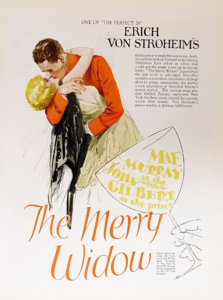
Synopsis:
When a wealthy widow (Jeanette MacDonald) leaves for Paris — thus threatening her small nation’s financial livelihood through loss of tax revenue — the King of Marshovia (George Barbier) orders a playboy captain (Maurice Chevalier) to court her and bring her back.
|
|
Genres, Themes, Actors, and Directors:
- Akim Tamiroff Films
- Ernst Lubitsch Films
- Jeanette MacDonald Films
- Maurice Chevalier Films
- Mistaken or Hidden Identities
- Musicals
- Romance
- Royalty and Nobility
- Widows and Widowers
- Womanizers
Review:
Based on an oft-filmed, beloved operetta by Franz Lehar, this romantic musical by director Ernst Lubitsch features Jeanette MacDonald in one of her best-known roles, starring opposite an actor (Maurice Chevalier) she detested in real life — thus making their on-screen romantic challenges all the more believable. The storyline is pure fluff, as perhaps it should be, with Chevalier’s playboy apparently so desirable he can bed any woman he wants — including the King’s wife (Una Merkel) — while not instilling a shred of possessiveness or jealousy in a one of them. It’s quite extraordinary:
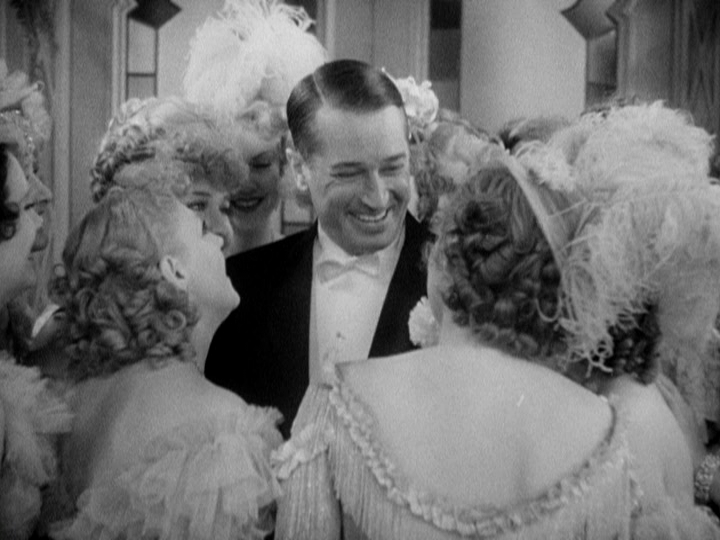
Cedric Gibbons and Fredric Hope’s Oscar-winning art direction, and Adrian’s gorgeous gowns (according to TCM, MacDonald’s 24 gowns alone “were so lavish it took 12 seamstresses four months to build them”) make this a treat to watch, and fans of MacDonald won’t want to miss it — but it’s not quite must-see viewing for all film fanatics. I recommend seeing MacDonald in Naughty Marietta (1935) instead.
Redeeming Qualities and Moments:
- Stunning gowns by Adrian
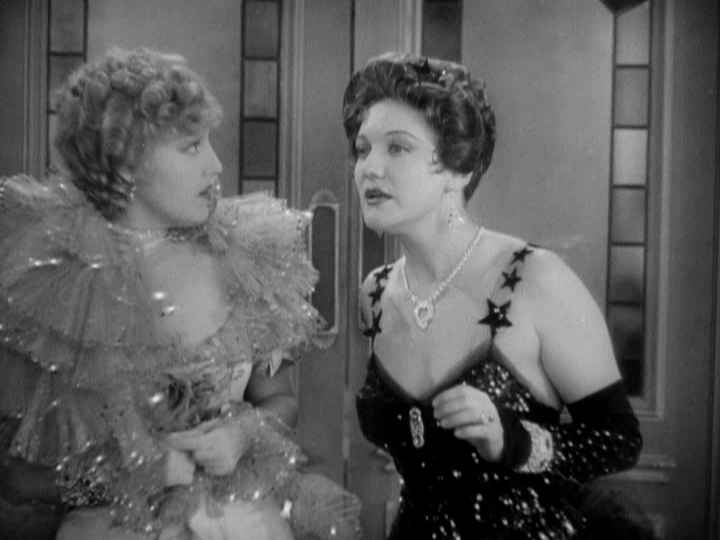
- Lavish sets
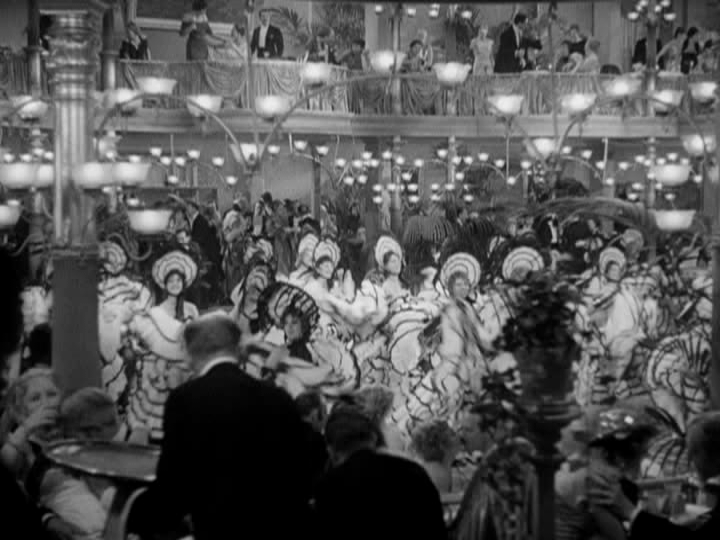
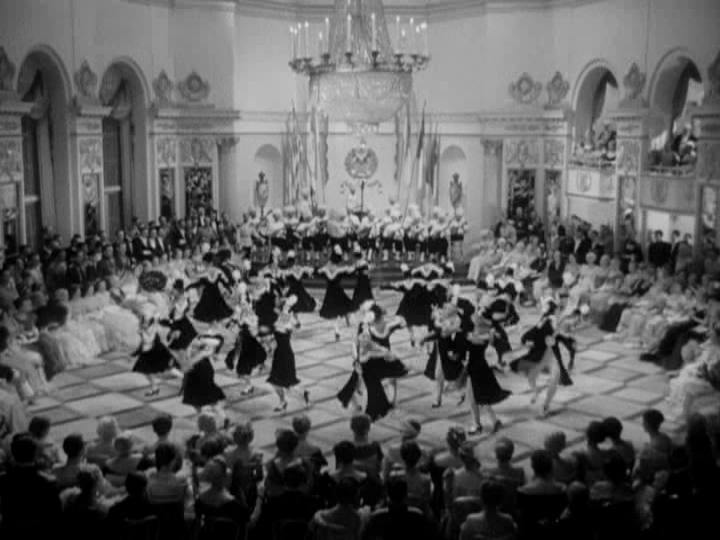
Must See?
No, though it’s recommended for one-time viewing. Listed in the back of Peary’s book as a film with Historical Relevance and a Personal Favorite.
Links:
|





One thought on “Merry Widow, The (1934)”
First viewing. A once-must, as a prime example of ‘The Lubitsch Touch’ – in this case, not just applied intermittently throughout but from start to finish. There’s a noticeable masterful quality in the way Lubitsch has designed a consistent flow to suit his overall vision of romance. At times, it just about reaches delirium (esp. in some of the ensemble dance sequences).
Lubitsch is helped considerably by the script by Ernest Vajda and Samuel Raphaelson (with contributions by Lubitsch and Lorenz Hart). There’s a satisfying amount of very funny dialogue which stands up well today. (One cast member who esp. benefits from it is Una Merkel; she’s so enjoyable here that I wish she had a larger role but she still registers quite nicely. Edward Everett Horton also stands out – showing, as he would again the following year in ‘The Devil is a Woman’, that he brings a persuasive comic effect when given a more macho role.)
I’m not even particularly drawn to the storyline here but Lubitsch’s way of telling the story is irresistible. I could quibble with the idea that every single woman finds Chevalier a hot stud; that’s a bit much. But it’s a small point.
It could just be me but MacDonald (in fine voice, as usual) seems particularly relaxed in this performance (her feelings about Chevalier notwithstanding).
With (as noted) striking art direction and costumes (and production design), this is the grand scale of MGM in all its opulence. But all of that would be of less importance without the sheer fun of the script and Lubitsch’s tireless attention to every detail, making this a film that seems to fly by.